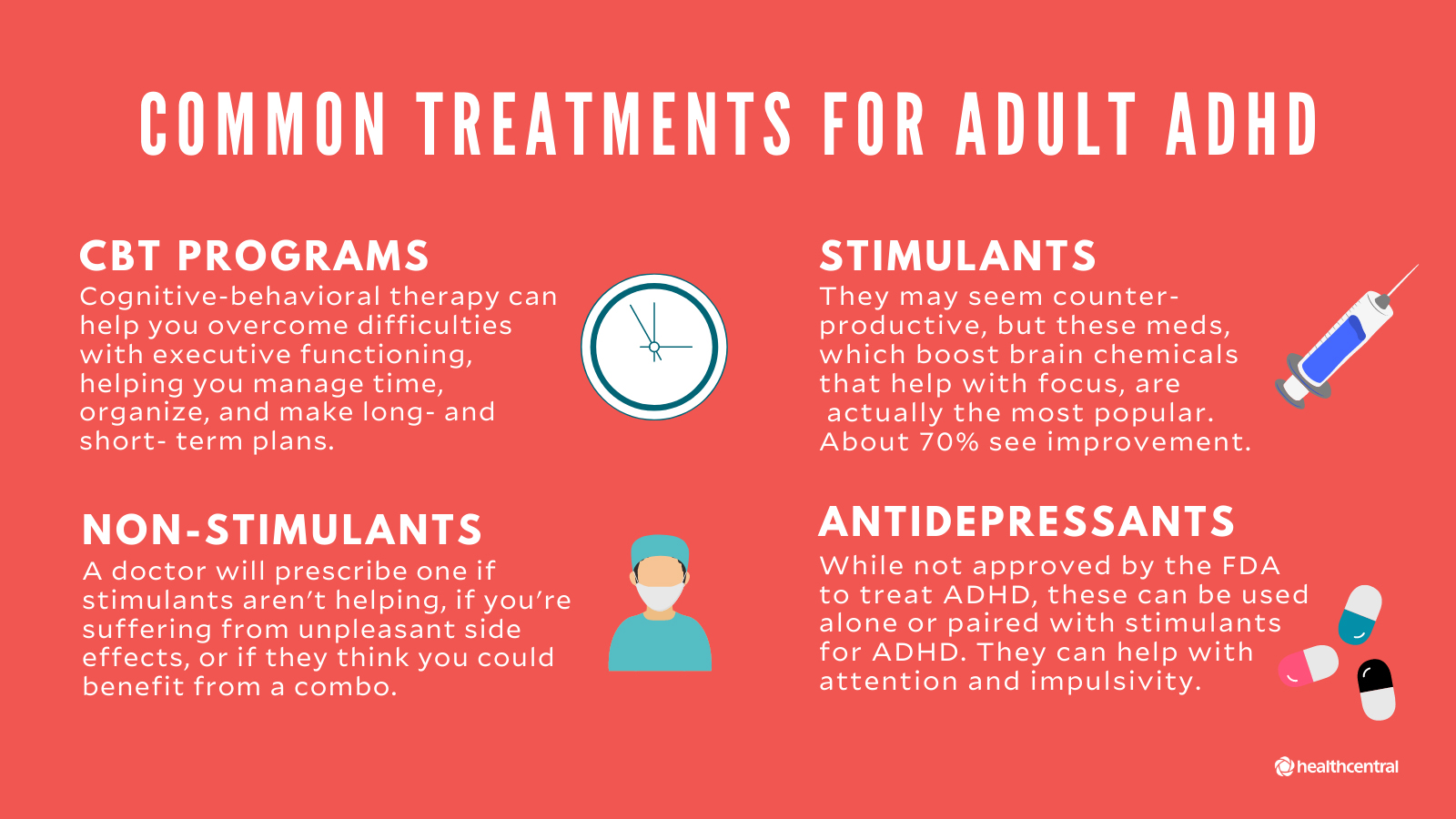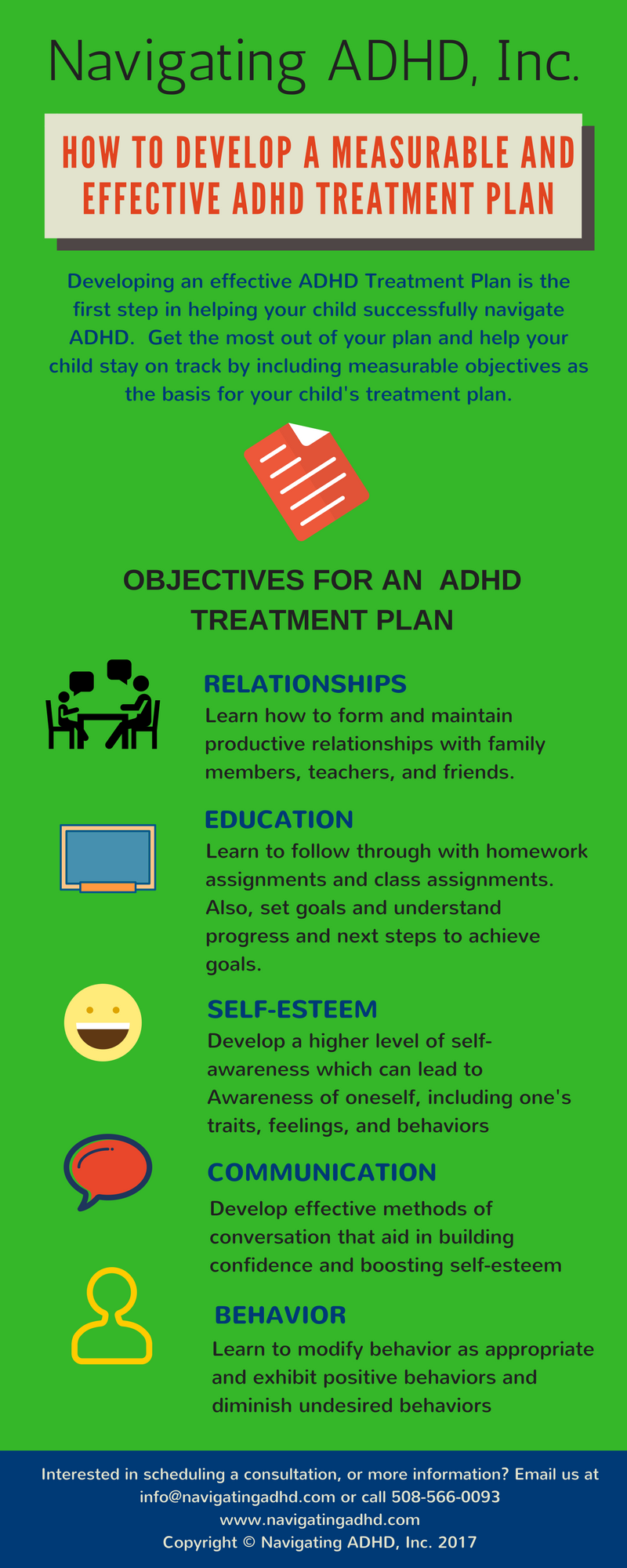Checking Out Effective ADHD Therapy Options for All Ages
The intricacies of Attention Deficit Attention Deficit Disorder Disorder (ADHD) present one-of-a-kind challenges across various age teams, necessitating a thorough exploration of reliable treatment alternatives. A mix of behavioral therapies, medicinal interventions, and way of life alterations has shown promise in attending to the varied demands of individuals with ADHD.
Understanding ADHD and Its Effect
Attention-Deficit/Hyperactivity Problem (ADHD) is a neurodevelopmental problem identified by persistent patterns of inattention, attention deficit disorder, and impulsivity that can substantially influence various elements of a person's life. It commonly shows up in childhood years, although signs and symptoms can linger right into their adult years. The core signs of ADHD can interrupt educational efficiency, impede social interactions, and make complex work endeavors.
Individuals with ADHD often deal with preserving focus on jobs, organizing tasks, and following with on instructions, which can lead to academic underachievement (Depression Treatment). In social contexts, impulsivity may lead to difficulties in creating and maintaining connections, as individuals might disrupt conversations or make rash decisions without taking into consideration effects
Additionally, ADHD can co-occur with various other psychological health conditions, such as stress and anxiety and anxiety, further complicating diagnosis and therapy. The irregularity in symptom presentation indicates that ADHD can affect people in different ways, necessitating an individualized strategy to management. Understanding ADHD's diverse influence is important for developing effective methods that sustain individuals in browsing everyday difficulties and accomplishing their capacity. Comprehensive understanding of ADHD's nature and effects lays the foundation for exploring suitable treatment options tailored per person's demands.
Behavioral Therapies for ADHD
Many behavioral therapies have actually been created to properly deal with the difficulties related to ADHD, concentrating on changing particular behaviors and cultivating essential skills. Among one of the most identified techniques are cognitive-behavioral therapy (CBT), moms and dad training, and social skills training.
CBT helps individuals determine and transform unfavorable thought patterns and behaviors, advertising a more favorable expectation and enhanced self-regulation. This therapy usually consists of practical approaches for taking care of impulsivity and improving organization. Moms and dad training programs equip caretakers by furnishing them with techniques to strengthen positive habits and set consistent boundaries, which can be specifically helpful for children with ADHD.
Social abilities training is another crucial element, teaching people with ADHD just how to engage effectively with peers - Depression Treatment. This technique often includes role-playing and comments to boost communication, participation, and conflict resolution skills
Including these behavioral therapies right into a detailed therapy plan can dramatically improve working and lifestyle for people with ADHD. Ultimately, the effectiveness of these treatments relies on customized strategies that take into consideration the distinct requirements of everyone, thus promoting strength and adaptability in every day life.
Medicine Options Available
For numerous people with ADHD, drug can play a substantial role in managing signs and improving total performance. The two primary categories of medicines recommended for ADHD are stimulants and non-stimulants.
Stimulants, such as methylphenidate and amphetamine-based drugs, are the most typically utilized treatments. These medications work by enhancing the levels of neurotransmitters, specifically dopamine and norepinephrine, in the mind, which aids boost focus and lower impulsivity and attention deficit disorder. They often yield fast outcomes, making them a preferred alternative for many people.

It is essential for doctor to perform a comprehensive evaluation to figure out one of the most appropriate drug based on private demands, medical history, and prospective negative effects. Routine follow-up and tracking are likewise vital to make certain the performance of the picked therapy and to make any required adjustments.
Lifestyle Changes to Take Into Consideration
Taking care of ADHD properly expands past drug, as way of living modifications can substantially improve overall well-being and signs and symptom control. Including organized regimens is vital; constant schedules help people with ADHD manage their time efficiently and reduce feelings of bewilder.
Routine physical activity is an additional crucial element. Exercise not just helps to enhance concentration but likewise increases state of mind and minimizes tension levels. Tasks such as intercare psychiatric services yoga exercise or team sporting activities can be especially beneficial, promoting both fitness and social interaction.
Nutrition additionally plays a crucial role. Depression Treatment. A well balanced diet plan abundant in omega-3 fats, whole grains, and lean healthy proteins can add to improved focus and cognitive feature. Limiting sugar and refined foods is recommended, as these can worsen hyperactivity and impulsivity
Rest hygiene is vital for handling ADHD signs and symptoms. Establishing a normal rest schedule and producing a relaxed environment can improve rest top quality, causing better attention and emotional policy.
Alternative and All Natural Methods
Different and alternative strategies to ADHD treatment use a varied variety of alternatives that complement conventional methods. These methods usually concentrate on lifestyle modifications, nutritional treatments, article source and healing practices that aim to enhance overall well-being while attending to ADHD signs.

Mindfulness and behavioral therapies are additionally getting grip as all natural interventions. Practices such as yoga, reflection, and cognitive-behavioral treatment can grow self-regulation and boost attention. These methods support emotional resilience, which is particularly helpful for people with ADHD.
Organic supplements, such as ginkgo biloba and ginseng, are in some cases explored; nevertheless, it is important to seek advice from health care professionals before incorporating these into treatment strategies. While choice and all natural strategies can provide useful assistance, they must preferably be utilized along with evidence-based treatments to achieve optimal outcomes for taking care of ADHD across all ages.
Conclusion
In recap, efficient ADHD therapy requires a thorough technique that includes behavioral treatments, medication, way of life modifications, and alternative methods. This diverse strategy highlights the importance of customized More Info treatment in addressing the diverse requirements of people with ADHD across all age groups.
Comments on “Expert ADHD Treatment for Effective Care”